The sun never sets on debates about the British empire
In 2017, Nigel Biggar, Regius Professor Emeritus of Moral and Pastoral Theology at the University of Oxford, encountered protest over an academic project on “Ethics and Empire.” Dozens of Oxford faculty and hundreds of academics around the world denounced the project. In response, Biggar wrote Colonialism: A Moral Reckoning to provide a “more historically accurate, fairer, more positive story . . . about the British Empire.” The stakes of these “Imperial History Wars,” he argues, are nothing less than the “integrity of the United Kingdom and the security of the West.”
Biggar’s anger about professors denouncing the ethical examination of empires is well-founded, especially given all the ink spilled in quarrels about the British empire. However, his defense of that empire raises more ethical questions about British imperialism than it answers. His claim that the UK’s integrity and the West’s security depends on a more positive story about the British empire is preposterous, particularly considering Brexit and how the Ukraine war underscores the indispensable role of American power in the security of the West.
Doing justice to ethics and historical facts
For Biggar, denunciations of his “Ethics and Empire” project and much of the literature condemning the British empire fail to do justice to historical facts and ethical reasoning. In Colonialism, he seeks to set the historical record straight to engage in more evidence-based ethical analysis. Biggar makes clear that the book “is not a history of the British Empire, but a moral evaluation of it.”
The book’s chapters focus on “moral questions that the history of the empire raises,” such as the motives for imperial activities, the relationship between slavery and colonialism, and whether the British empire was racist, exploitative, violent, and genocidal. These questions have ethical importance on their own, but they also, Biggar observes, correspond to factual claims and ethical accusations that critics of the empire make. Each chapter focuses on showing “why the condemnations have exceeded the evidence” by exposing the “gap between the data and the reasons given” and “anti-colonialist assertions and judgements.”
Readers not versed in the empirical knife fights of the Imperial History Wars might hesitate to trust Biggar or his anti-empire foils on the facts of complex historical events. Biggar would consider such hesitation a victory because readers would not swallow the “fashionable” anti-colonial version of history. He believes the historical record supports feeling “shame and lament” and “pride and admiration” concerning British imperial activities, most powerfully illustrated by Britain’s initial embrace of slavery and the international slave trade and its eventual prohibition of slavery and leadership in ending the slave trade.
A reckoning that does not reckon
Biggar promises a moral reckoning on the British empire based on historical facts. Reckoning involves reaching a conclusion by calculating or estimating something. Curiously, Biggar concludes that it is impossible to determine whether British imperialism produced more good than evil. He writes that the “goods and evils that the empire caused . . . are of such different kinds that they cannot be measured against one another. They are incommensurable.”
Incommensurable means that two things cannot be compared because they do not share a common standard of measurement. Biggar uses historical facts and ethics as his standards of measurement in countering anti-colonial narratives and building a more positive story about the British empire. His approach produces a more complicated picture than the one constructed by imperial critics, but ethical reasoning is no stranger to complexity. Weighing good and evil to reach moral conclusions about messy human behavior is the bread and butter of such reasoning.
Yet, at the decisive moment of reckoning, Biggar concludes that the good and evil associated with the empire cannot be compared in any meaningful way. The reader is left wondering why, given his professed fidelity to historical facts and ethical reasoning, Biggar cannot reach ethical conclusions about the historical facts concerning the British empire. That choice increases incentives to scrutinize Biggar’s ethical analysis of imperial endeavors more deeply.
Take Biggar’s summary of the British empire’s evolution: “From the early decades of the nineteenth century, its natural, innocent concerns to promote trade and maintain strategic advantage were increasingly supplemented and tempered by Christian humanitarianism, a commitment to public service and a liberal vision of political life.” The notion that promoting trade and maintaining strategic advantage were “natural, innocent concerns” is ethically suspect as centuries-old controversies about international trade and balance-of-power politics attest. These controversies underscore the need to interrogate the ethics of trade and strategic motives because, as Biggar states, a “policy must primarily want or intend something good or valuable” to be morally right. Nor is it clear why Christian tempering of the harms that British economic and strategic interests created for non-Christian peoples deserves ethical commendation.
Further, Biggar’s praise for a “liberal vision of political life” echoes the “standard of civilization” that European-made international law used to justify European imperialism against non-European societies in the nineteenth and early twentieth centuries. That standard deemed non-European societies “uncivilized” unless they adopted European ideas concerning government, law, and justice. The standard was a fig leaf for an end-justifies-the-means rationale for European imperialism, and it operated in a racist manner. Such criticism does not mean that non-European societies were ethical paragons before Europeans arrived, but it does raise questions about why and how the “liberal vision of political life” became a global ethical measuring stick—questions that Biggar does not adequately address.
British self-confidence and the liberal international order?
Colonialism ends with an epilogue entitled “On Anti-Colonialism and the British Future” that connects the book with present-day controversies about the spread of authoritarianism, the decline of democracy, and the weakening of the liberal international order. According to Biggar, anti-colonialism reflects a “moral-political dogmatism” that characterizes authoritarian thinking and threatens to “cripple the self-confidence of the British . . . in their role as important pillars of the liberal international order.”
The epilogue is bizarre in asserting that a positive view of the British empire is needed to shore up Britain’s role in the liberal international order built after World War II. Post-1945 Britain had to de-imperialize, which made the good and evil aspects of the empire increasingly irrelevant to Britain’s place in international politics. Post-imperial Britain had to shelter under American power, and it chose to subordinate some of its sovereignty to the European project of creating an ever closer union of peoples. Neither of these developments resulted from, or depended on, ethical evaluations of the old empire.
In addition, threats to Britain’s role in the liberal international order emerged in British politics for reasons having nothing to do with the anti-colonialism that Biggar critiques. The decision to leave the European Union—Brexit—damaged the UK’s global standing and capabilities. That self-inflicted wound cannot be blamed on anti-colonialism but on conservative politicians and nationalistic voters motivated, in part, by nostalgia about the British empire.
Russia’s invasion of Ukraine has also underscored how dependent Britain’s security is on the United States. How the United States exercises its power to defend the liberal international order is not influenced by the anti-colonialism that agitates Biggar. Threats to U.S. leadership of the community of democracies—and thus to Britain’s security—arise more within the United States from right-wing politicians contemptuous of historical facts and ethical reasoning.
On reparations
The most salient contemporary issue for Biggar’s analysis is the movement for reparations for slavery and injustices done to indigenous peoples by European imperialism. Unfortunately, Bigger does not spend enough time on the controversies associated with reparations. He expresses skepticism about such demands because, as noted earlier, he believes that imperial goods and evils are incommensurable, which makes the evils non-compensable.
Concerning reparations for slavery, his emphasis on Britain’s abolition of slavery and campaign to end the slave trade informs his skepticism. In addition, he questions why British involvement in slavery receives disproportionate attention when many societies engaged in slavery and the slave trade. He cites a British diplomat’s response to a Nigerian official’s desire for compensation for the damage British imperial rule inflicted: “‘I entirely agree,’ he said. ‘And you shall have your compensation—just as soon as we get ours from the Romans.’”
Biggar’s use of this too-clever-by-half quip is unfortunate because it fails to connect the demand for reparations with his belief that the British empire was ethically better than other empires. Even though he does not argue that, on balance, the goods of the empire outweighed the evils, that conclusion opens space for deliberation about whether what made the British empire different should make Britain take claims for reparations seriously as a matter of ethics. Doing so does not mean that reparations should be paid because, as Biggar’s analysis suggests, doing justice to historical facts and ethical reasoning is, with the British empire, complicated.
Keep calm and carry on
Whether Colonialism becomes a seminal work in the Imperial History Wars remains to be seen. What relevance these wars have for the “integrity of the United Kingdom and the security of the West” is easier to discern. The threats facing Britain, other democracies, and the international order arise from political forces unconnected with moral reckoning about an imperial moment that, in Biggar’s words, “has passed, once and for all.”
Make no mistake, the British need a stiff upper lip now more than at any time since the Cold War ended, but not for the reasons Biggar claims. Today’s post-Brexit, multipolar, and increasingly authoritarian world could not care less whether, once upon a time, the British empire hosted both good and evil.









